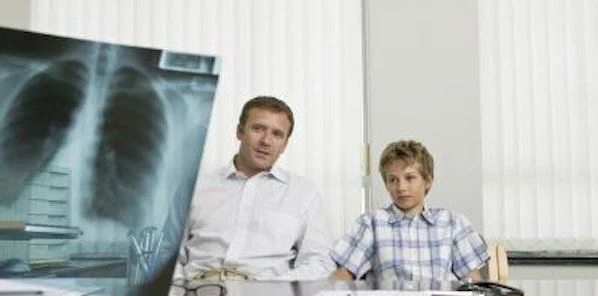According to a study
presented this week at the annual meeting of the Radiological Society of North America
(RSNA), researchers at the Mayo Clinic have found that many children receive
chest x-rays that may be unnecessary and have no clinical benefit.
"Chest x-rays can be a valuable exam when ordered for the correct indications," said Ann Packard, MD, radiologist at the Mayo Clinic in Rochester, Minnesota. "However, there are several indications where paediatric chest x-rays offer no benefit and likely should not be performed to decrease radiation dose and cost."
During the study, Dr. Packard and co-author Kristen B. Thomas, MD, head of the paediatric division at Mayo Clinic and assistant professor of radiology at the Mayo Medical School, reviewed data from 719 paediatric chest x-ray exams ordered between 2008 and 2014 in the Mayo Clinic's inpatient, outpatient and emergency room settings. The patients undergoing the exams ranged in age from newborn to 17 years old.
Out of the 719 x-ray exams, 377 were ordered for chest pain, 98 indicated syncope or presyncope, 21 indicated spells, 37 indicated postural orthostatic hypotension (POTS), 185 indicated dizziness, and one exam indicated cyclical vomiting. Eighty-two exams were excluded due to congenital or other known heart disease, and other causes.
The analysis showed that the x-ray exams did not alter clinical treatment in approximately 88 percent of the patients. Thirty-nine of the 330 non-excluded x-rays for chest pain were positive for pneumonia, bronchial inflammation, trauma, or other conditions.
"Approximately 12 percent of the chest x-rays for chest pain were positive and included respiratory symptoms such as cough, fever or trauma," Dr. Packard said. "There were no positive findings in any chest x-ray for syncope, dizziness, spells, cyclical vomiting or POTS for the past five years, even in our tertiary care centre with referrals for rare diseases or unusual presentations."
Dr. Packard notes that it is important to optimise radiation exposure and to consider the costs involved. These issues are important not only for physicians but also for young patients and their parents. She highlights the fact that this research could serve as a guide for clinicians to deter them from ordering unnecessary exams which offer no clinical benefit to the patient.
Source: RSNA
Image Credit: Google Images










